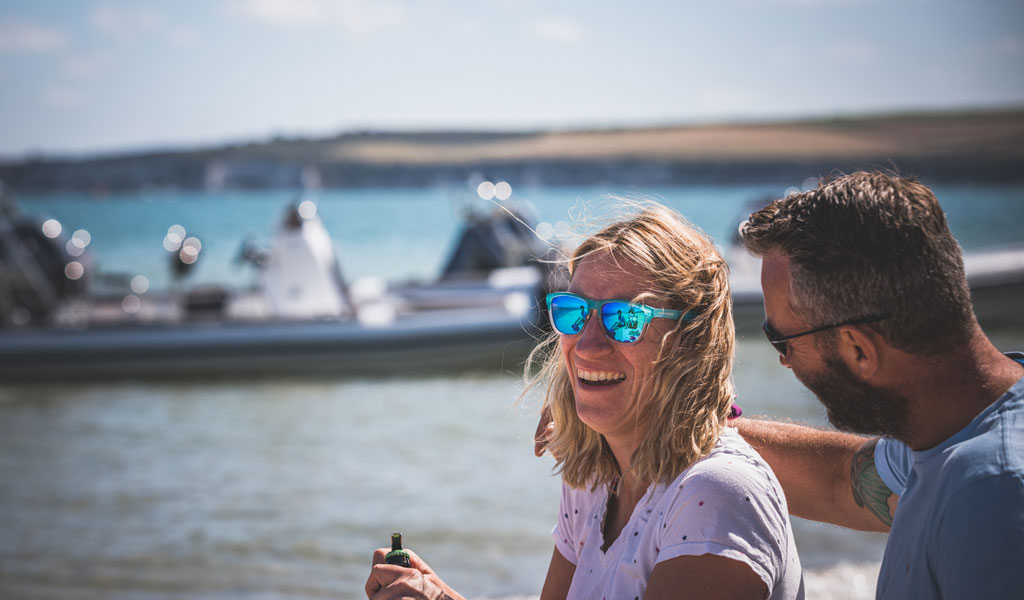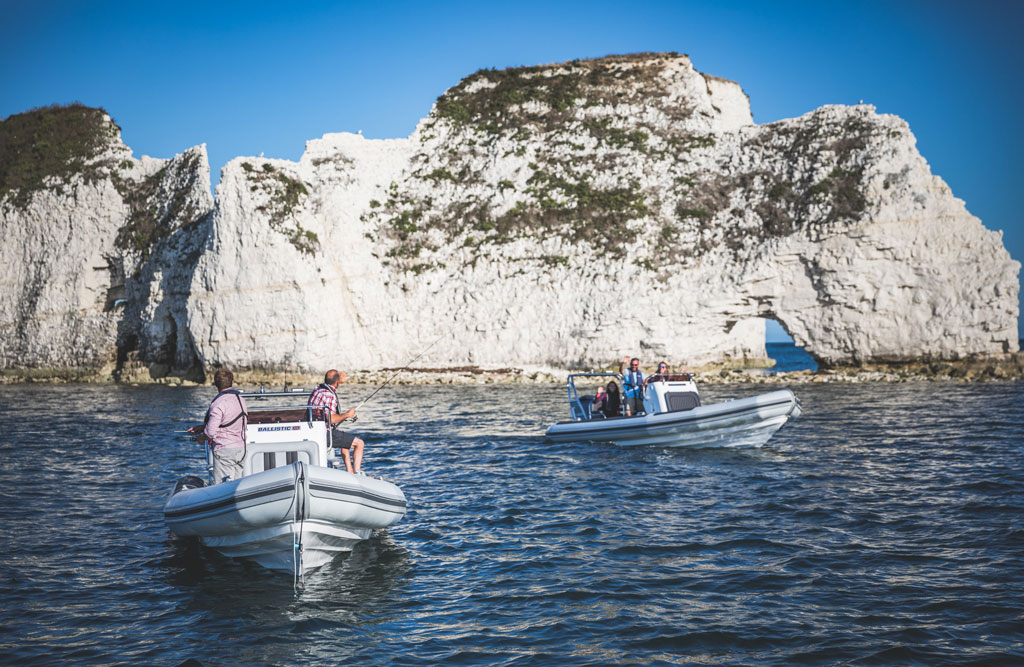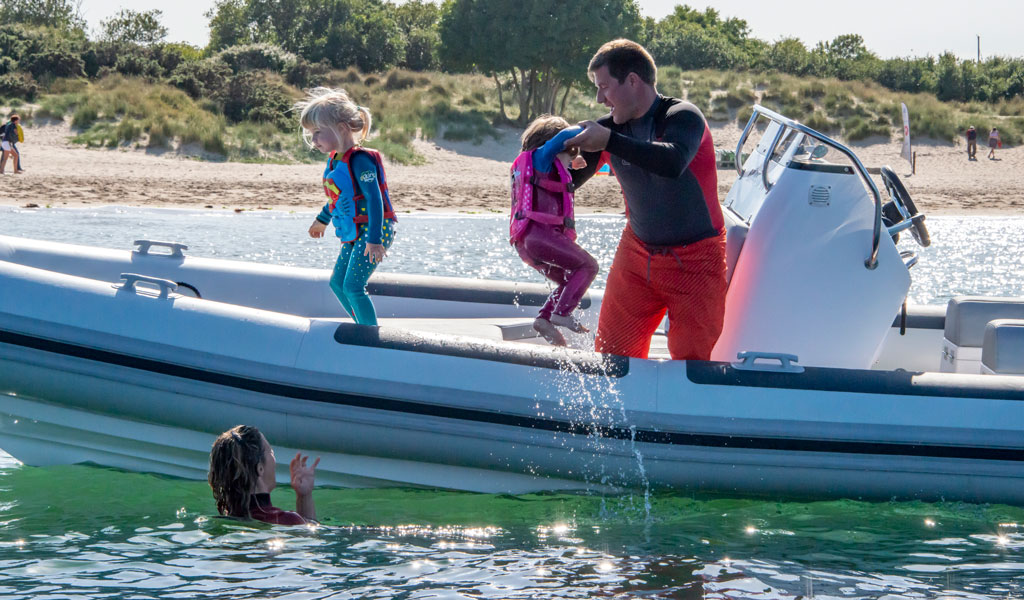 Alternative ways to go boating without owning a boat
Alternative ways to go boating without owning a boatMany people initially look at owning a boat and then pause at the costs. Buying a boat starts with the initial purchase costs and then, like a house, you quickly find you need cash, time and commitment to run and maintain it in good, safe working order. Unlike your home, you also need to find time to use the boat.
If owning a boat is not an option, how do people go boating?
Our handy guide steers you through the variety of ways to get on the water. You may well end up owning a boat in one location and choosing one of these routes to go boating in another favourite destination.
If you are completely new to boating, going to an RYA recognised training centre is a good starting point. These organisations offer courses for novices to learn how to handle powerboats and motor cruisers, which are quick and easy to do, plus there are courses on navigation and seamanship. To progress to higher levels there are intermediate and advanced courses, if you wish to do them.
The most recognised international qualification is the RYA Powerboat Level 2, which is a bit like holding a driver’s licence, and will normally enable you to charter a boat. Once, you’ve got your qualification, the next step is to build up your boating experience and sea miles. Some training centres may offer boats for hire, although many will only charter to professional skippers.
There are also powerboat training centres across the UK – see the RYA website.
There are four key ways to enjoy boating, without even needing to own a boat. Each has it’s merits depending on what you wish to do, the level of flexibility and how often you wish to get afloat.
Often popular for a day out with friends, family or guests, a number of organisations offer skippered charters. This is similar to limousine hire, where the RIB (Rigid Inflatable Boat) or motor yacht comes supplied with a fully qualified skipper (the driver) and sometimes the catering is included too.
How it works:
The skipper takes care of all the boat preparation, planning, navigation, safety and vessel handling. They may choose the best destination for the winds, tides and conditions, or it’s possible to arrange a bespoke trip to a specific venue. Either way, you can sit back, relax and enjoy the ride without any of the responsibility.
If you charter a larger boat you may be able to go further afield or for overnight trips with the skipper. Cabins, bedding and provisioning are usually provided, although may incur additional charges.
A bare boat charter is more like self-drive car hire. It can be ideal for an occasional boating day trip, taking a weekend break or a full boating holiday.
Powerboating holidays range from:
How it works:
If you are hiring or chartering a RIB, sports boat or motor cruiser you will often need evidence of experience. Most charter companies normally require the nominated driver to hold the RYA (Royal Yachting Association) Powerboat Level 2 qualification or an International Certificate of Competence, known as the ICC. In addition, some organisations may want to see you handling their boats before you are allowed to depart.
 Your RIB or powerboat should be provided with all the necessary safety equipment such as VHF radios and chart plotters (digital interactive maps of the local waters). Only some firms offer personal safety equipment such as lifejackets or waterproofs, so you may need to bring your own or hire them.
Your RIB or powerboat should be provided with all the necessary safety equipment such as VHF radios and chart plotters (digital interactive maps of the local waters). Only some firms offer personal safety equipment such as lifejackets or waterproofs, so you may need to bring your own or hire them.
Pricing models vary and can be by the half or full day with additional charges for fuel. Some companies offer multi-day packages, which can be ideal for a one-off holiday charter or more regular local use.
Downsides
The ‘Boat Club’ is a relatively new powerboating concept that is catching on across the UK. It is based on all the members sharing the assets – all the boats – without actually owning them, or being responsible for the maintenance, storage and management.
Sometimes known as membership boating club these professionally managed boat share clubs mean you simply:
How it works:
Most boat share clubs require members to hold the RYA Powerboat Level 2 qualification or demonstrate equivalent experience. Some clubs include your training course and induction within your fees and manage this all ‘in house’. Other clubs may offer an option to facilitate your training in-house or locally for an additional fee.
The subscription models often vary between clubs and you may be asked for a joining fee as well as a monthly subscription. Booking systems vary too and you may find:
For instance, Boat Club Trafalgar based in Portsmouth Harbour, sits in this latter category, with unlimited booking and access to a range of high specification, premium quality boats, including Ballistic RIBs and Finnmaster sports boats, and Jeanneau cabin cruisers.
Choice of boats:
Compared to owning a boat, having a wide choice of boats, means you can book the boat best suited for what you want to do. A RIB is great for a big family beach day, a motor cruiser will be perfect for a fishing trip, or a sports boat for a couples day out. Or a cabin cruiser is a good option if you wish to go further, stay overnight or extend the season into the autumn months.
After your session, you simply walk away, and the Club team sorts the boat cleaning, maintenance, lifts it out and stores it away. As well as full training and induction, Boat Club Trafalgar offers guided day trips around the Solent to popular harbours and anchorages for new members to get oriented with local navigation.
 What’s the difference with a Boat Club and Yacht Club?
What’s the difference with a Boat Club and Yacht Club?
In contrast to the Boat Club model, there are many different types UK yacht club or dedicated motoryacht clubs where, typically, members are proposed, you join and have to bring your own boat along. Joining a club like this typically means that you:
With the emergence of the ‘shared economy’, Apps and artificial intelligence, there are now a number of peer-to-peer boat rental websites.
These digital marketplaces work in a similar way to AirBnB, where primarily private individuals offer their boats for charter. Peer-to-peer boat sharing is certainly growing in popularity, is very convenient and a terrific way to try a new location or different type of boat.
How it works:
You simply search on location, dates and boat type, and customise your own boating trip or holiday, which could be in the UK or abroad.
It’s a quick and easy way to search and select a boat, although depending on the site, choices of the right sort of boat in your preferred location may be quite limited.
Compared to established boat charter businesses, be prepared for a variety of quality standards as you are unlikely to be using premium quality, recently built motor yachts or RIBs. In most countries there are certain safety codes and standards to be met to charter a boat. However, if it’s a private rental, you may wish to do some due diligence and thorough checks yourself about the safety equipment on board and service records etc, prior to booking or setting off.
Some platforms, such as Click and Boat are primarily oriented towards private boat shares. Others, such as Borrow a Boat, have expanded from just the peer-to-peer market, to include charter company boats too and now list over 35000 boats in over 65 countries.
If you are not yet ready to buy your own boat, yet are keen to have some personal ‘ownership’ and involvement in the boat? These ‘boat sharing’ solutions might suit you:
This can work as a private agreement between friends or family and can suit more experienced boaters. Private sharing though can be fraught with problems too, about who gets the best dates, does the boat work and sharing costs.
It’s a good idea to get a professional contract done which clearly sets out the agreement and what happens if you want to terminate or sell the boat.
Fractional ownership works in a similar way to property time shares. The company often manages the boat, its maintenance and berthing, and will find and match the sharers to the boat syndicate.
The boat may have one owner who buys all or part of the boat, and a group of 4 to 8 syndicate members (sharers) that pay a fee for the right to use the boat for a set number of allocated days or weeks. The owner may receive an annual income based on a small percentage of the boats base price, that offsets the overall running costs. Alternatively, there may be an option to purchase the boat outright at the end of the contract.
Private boat share:
Another fractional ownership model is when all the members buy into a share of the boat, and the size of the share dictates the number of weeks usage.
The syndicate may choose how they manage the boat’s annual maintenance and berthing, or the company manages that for them. If you want to own a boat or go boating in a specific location, and have limited time to use it, fractional sharing can be a very practical option.
This guide shows you the immense choice and options available to get boating without owning a boat or your own. There are more flexible, affordable ways to both try boating and get afloat, at times and places to suit you, without the ties and responsibilities of having your own boat.
When you want to travel, whether it’s a UK holiday or flying off abroad, a bare boat charter or peer-to-peer rental is a way to experience new destinations and other types of boat. If you want the opportunity for regular, unlimited boating, at times to suit you, without the hassles of boat ownership, a boat share club, such as Boat Club Trafalgar, is a convenient option.
Joining a reputable Boat club enables you plenty of choice, flexibility and, with the knowledge that all the important details are taken care of, you can maximise your time to quite simply just go boating.
#MoreTimeOut

Why not get in touch for a free Boat Club taster session.
We’ll jump aboard one of the fleet boats and head out for some some sea air, answering any questions you may have about membership boating along the way.